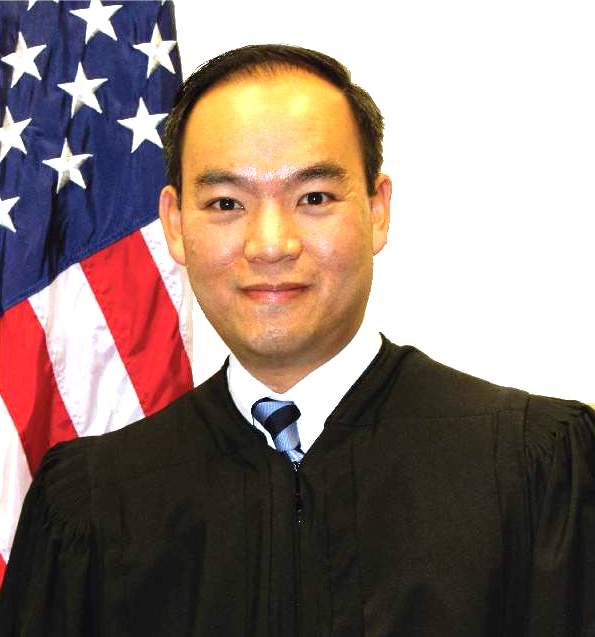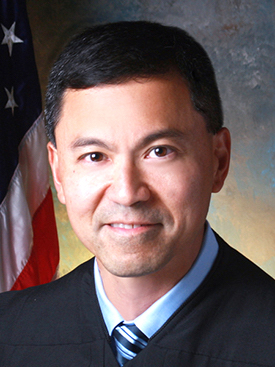Two judges block Trump’s third travel ban
LOS ANGELES — President Donald Trump’s third attempt at instituting a temporary ban on U.S. entry from certain countries was once again shut down — by two federal judges from Hawaii and Maryland earlier this week.
U.S. District Judge Derrick K. Watson of Hawaii blocked the administration from implementing the third draft of the president’s travel ban which barred U.S. travel from six countries on October 17, one day before it was set to go into effect.
This means that the administration cannot restrict entry of travelers from six of the eight affected countries listed in the ban: Chad, Iran, Libya, Somalia, Syria and Yemen. Watson’s ruling, however, did not affect North Korea and Venezuela; the Trump administration is may prohibit travel from those countries.
Watson, who blocked previous versions of the ban earlier this year, wrote a 40-page decision that granted Hawaii’s request for a temporary nationwide restraining order of the ban.
He wrote that Trump’s latest reincarnation of the ban “suffers from precisely the same maladies as its predecessor” and it “plainly discriminates based on nationality” that violates “the founding principles of this Nation.”
Additionally, Watson wrote that the president has “wielded his authority unlawfully.”
Maryland ruling
The following day, U.S. District Judge Theodore D. Chuang of Maryland issued a less restrictive halt on the ban, allowing U.S. entry only for people who can prove a “bona fide” relationship or entity in the U.S.
Like Watson, under the Hawaii judge’s ruling, U.S. entry from North Korean and Venezuelan nationals is still restricted per the ban.
Granting a motion on behalf of plaintiffs led by the International Refugee Assistance Program (IRAP), Chuang’s decision to issue the block came from analyzing Trump’s rhetoric from his presidential campaign and his Twitter.
Mirroring Watson’s reasons for implementing the block, Chuang was convinced that the latest ban proved to be an “inextricable re-animation” of the previous versions that were shut down by federal courts.
The judge added that the plaintiffs, who are refugees from the affected countries, will likely “suffer irreparable harm in the absence of injunctive relief, and that the balance of equities and the public interest favor an injunction,” according to his official order.
“To the extent that the Government might have provided additional evidence to establish that national security is now the primary purpose for the travel ban, it has not done so,” Chuang wrote in his ruling.
White House appeal
In response to the two judges’ rulings, the Justice Department — on behalf of the Trump administration — formally filed an appeal to challenge the ruling from the Maryland judge. As of press time, it has not filed a notice of appeal in the Hawaii case.
But in order to get the ban fully in effect, the Justice Department will have to win both cases; victories are needed in both the U.S. Court of Appeals for the 4th Circuit for the Maryland case and the U.S. Court of Appeals for the 9th Circuit in the Hawaii case. Both appellate courts have previously ruled against the Trump administration in the second version of the travel ban.
Trump’s third travel ban involved barring all entry into the U.S. of nationals from Iran, Libya, Syria, Yemen, Somalia, Chad and North Korea. Additionally, certain people from Iraq and Venezuela would face stricter security protocols, as previously reported by the Asian Journal.
The ban also included stronger collaboration with foreign governments to strengthen identity-management protocols and information-sharing practices as a way to limit “risk-factors” when welcoming travelers from affected countries.
The American Civil Liberties Union (ACLU) has been legally advocating on behalf of IRAP and condemned the administration for the third travel ban, maintaining that it is unconstitutional in that it still promotes Islamophobic policies.
“Like the two versions before it, President Trump’s latest travel ban is still a Muslim ban at its core. And like the two before it, this one is going down to defeat in the courts. Religious discrimination with window dressing is still unconstitutional,” said Omar Jadwat, director of ACLU’s Immigrants’ Rights Project, said on Wednesday following the rulings from the two judges.



